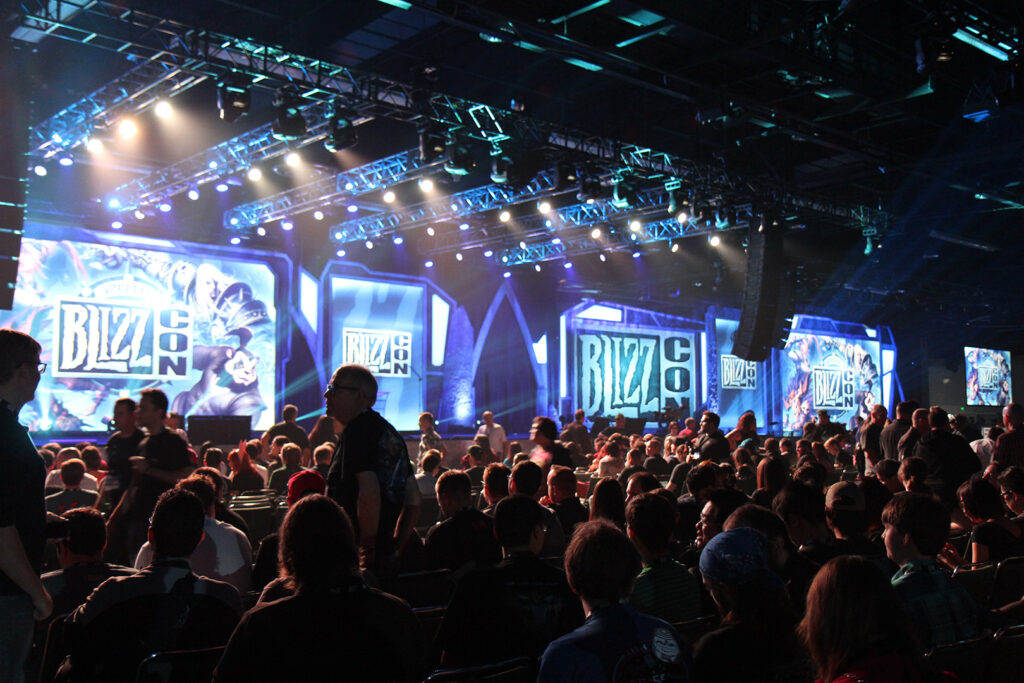
If there’s one thing a lot of indie game developers are learning the hard way, it’s that making a game is only the first step to success. There’s a reason why we live in a world full of YouTube ads, TV commercials, and companies paying millions for just 30 seconds of time during the Super Bowl—promotion works. The same goes for video games, which means that if you don’t make sure people hear about your game, few people are going to discover it.
We’ve previously covered everything an independent team should know about promoting their game. But what we haven’t talked about before is what to look for in the individual/s who will be in charge of spreading the word. Whether it’s one of the developers or you someone you bring in to do the job, below are five requirements we feel every good game marketer should try to fulfill.
The Marketer Understands the Community
Show us a successful game, big-budget or independent, and we’ll show you a game that has a strong community. The fact is, there are few industries out there that have communities as active and invested in the products as video games. From writing reviews and creating fan art to following social media pages and providing feedback, gamers are a very involved bunch.
This means that without support from the gaming community, it’s likely that your project will fade away into obscurity in no time. Whoever is promoting your game needs to recognize what works to get people interested in your game, while at the same time being careful not to bring in negative attention. Who could forget the ex-Microsoft guy who mocked people living in places with poor internet connects?
The Marketer Understands the Game Enough to Make It Sound Amazing.
At first glance this may seem like a no brainer, especially if the person tasked with marketing duties is also helping out with art, programming, and more. Boasting a solid team of indie developers who are all equally excited about the project, you might feel confident that any one of them can promote the game without a problem.
However, your marketer should understand the game so well that he or she can make it sound attractive to anyone. In a world where 2D retro platformers are all over the place, your marketer must be able to highlight your game’s strengths and why it’s different (and better) than the rest. If they don’t truly grasp what makes your game amazing, it will be hard for them to explain the game in a way that pulls in new audiences.
The Marketer Can Deal with Negative Feedback.
No matter how amazing your game is, someone is bound to come along and tell you why they hate it. This is rarely a surprise most people have encountered a game at some point they couldn’t stand, even though everyone else thought it was great. The problem is when the person in your team interacting with the community doesn’t know how to take negative feedback.
If your marketer has a hard time not taking feedback personally, they may not be the one for the job. Find (or be) someone who can set aside her or his feelings and instead focus on what the people are trying to say. Instead of allowing negative feedback to discourage you and your team, see it as constructive criticism that can help you to improve your game.
The Marketer is Actively Promoting During Development.
As we’ve touched on before, teams that don’t begin marketing their game until after it is completed are at a severe disadvantage. Your promoter should be doing whatever it takes to spread news of the game long before its release date. This way you’ll already have a group of people anticipating its release and hopefully telling others to pick it up as well. The marketer should also be making use of every tool available in this day and age.
A Facebook page and email account isn’t enough anymore—there’s a ton of people you’ll only reach if you also have accounts for other popular sites and social media pages like Twitter, YouTube, Twitch, and many more. You may also want to attend conventions that welcome independent games. Promoting a game properly is busy work, which means your marketer should be willing to dedicate several hours a week to the task.
[su_note]Learn the skills you need to succeed as a game designer at the Game Design School at the New York Film Academy by clicking here.[/su_note]


